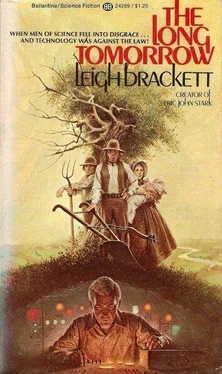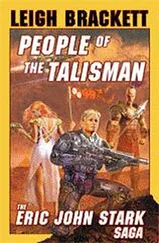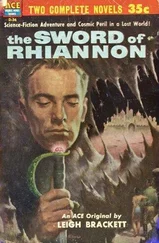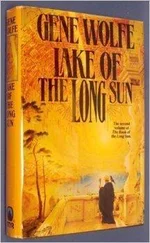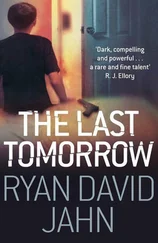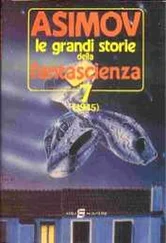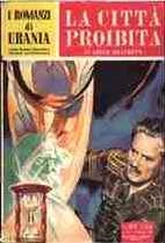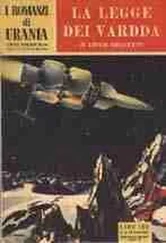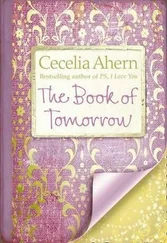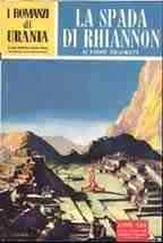But could you? Could you give up all the mystery and wonder of the world? Could you never see it, and never want to see it? Could you stop the waiting, hoping eagerness to hear a voice from nowhere, out of a little square box?
In January, just after the turn of the year, there was an ice storm on a Sabbath evening. On Monday morning Len walked to school just as the sun came up, and every tree and twig and stiff dead weed glittered with a cold glory. He lagged on the way, looking at the familiar woods turned strange and shining like a forest of glass—a sight rarer and lovelier than the clinging snows that made them all a still, hushed white—and he was late when he crossed the village square, past the chunky granite monument that said it was in memory of the veterans of all wars, erected by the citizens of Piper’s Run. It had had a bronze eagle on it once, but there was nothing left of that now but a lump of corroded metal in the shape of two claws. It too was all sheathed in ice, and the ground underfoot was slippery. Ashes had been thrown on the steps of Mr. Nordholt’s house. Len clambered up onto the porch and went inside.
The room was still chilly in spite of a roaring fire in the grate. It had a tremendously high ceiling and very tall double doors and very long windows, so that more cold leaked in than a fire could handily take care of. The walls were of whitewashed plaster, with a lot of ornamental woodwork polished down to the original dark grain of the native black walnut. The students sat on rough benches, without backs, but with long trestle tables in front of them. They were graded in size, from the littlest ones in front to the biggest in the back, girls on one side, boys on the other. There were twenty-three in all. Each one had a small slab of smooth slate, a squeaky pencil, and a rag, and they were taught everything but their sums from the Bible.
This morning they were all sitting very still with their hands in their laps, each one trying to blend into the room like a rabbit into a hedgerow so as not to be noticed. Mr. Nordholt was standing facing them. He was a tall, thin man, with a white beard and an expression of gentle sternness that frightened only the very young. But this morning he was angry. He was angry clear through with a towering and indignant wrath, and his eyes shot such a glare at Len that he quailed before it. Mr. Nordholt was not alone. Mr. Glasser was there, and Mr. Harkness, and Mr. Clute, and Mr. Fenway. They were the law and council of Piper’s Run, and they sat stiffly in a row looking thunder and lightning at the students.
“If,” said Mr. Nordholt, “you will be good enough to take your seat, MisterColter—”
Len slid into his place on the back bench without stopping to take off his thick outer jacket or the scarf around his neck. He sat there trying to look small and innocent, wondering what on earth the trouble was and thinking guiltily of the radio.
Mr. Nordholt said, “For three days over the New Year I was in Andover, visiting my sister. I did not lock my door when I went away, because it has never been necessary in Piper’s Run to lock our doors against thieves.”
Mr. Nordholt’s voice was choked with some very strong emotion, and Len knew that something bad had happened. He went rapidly over his own actions on those three days but found nothing that could be brought up against him.
“Someone,” said Mr. Nordholt, “entered this house during my absence and stole from it three books.”
Len stiffened in his seat. He remembered Esau saying, “We need a book—”
“Those books,” said Mr. Nordholt, “are the property of the township of Piper’s Run. They are pre-Destruction books, and therefore irreplaceable. And they are not for idle or indiscriminate use. I want them back.”
He stood aside, and Mr. Harkness rose. Mr. Harkness was short and thick, and bandy-legged from walking all his life after a plow, and his voice had a rusty creak in it. He always prayed the longest prayers in meeting. Now he looked along the rows of benches with two little steely eyes that were usually as friendly as a beagle’s.
“Now then,” said Mr. Harkness, “I’m going to ask each one of you in turn, did you take them or do you know who did. And I don’t want any lies or any bearing of false witness.”
He stumped over to the left-hand corner and began, walking down the benches and back again. Len listened to the monotonous No Mr. Harknesscoming closer and closer, and he sweated profusely and tried to loosen his tongue. After all, he did not know that it was Esau. Thou shalt not bear false witness, Mr. Harkness just said so, and to look guilty when you’re not is a sort of false-witnessing. Besides, if they get to looking around too close they might find out about the—
Harkness’ eye and finger were pointed straight at him.
“No,” said Len, “Mr. Harkness.” It seemed to him that all the guilt and fear in the world were loud and quivering in those three words, but Mr. Harkness passed on. When he came to the end of the last row he said,
“Very well. Perhaps you’re all telling the truth, perhaps not. We’ll find out. Now I’ll say this. If you see a book that you know does not belong to the person who has it, you are to come to me, or to Mr. Nordholt or to Mr. Glasser or Mr. Clute or Mr. Fenway. You are to ask your parents to do the same. Do you understand that?”
Yes, Mr. Harkness.
“Let us pray. Oh God, Who knowest all things, forgive the erring child, or man, as it may be, who has broken Thy commandment against theft. Turn his soul toward righteousness that he may return that which is not his, and make him patient of chastisement—”
Len took a chance on his way home and made a circle down through the woods, running most of the way to make up for the extra distance. The sun had melted some of the icy armor on the trees, but it was still bright enough to hurt the eyes, and the footing was treacherous. He was blown and weary by the time he got to the hollow tree.
There were three books in it, wrapped up in canvas beside the radio, dry and safe. The covers and the paper inside fascinated him with faded colors for the eye and unfamiliar textures for the touch. They had an indefinable something in common with the radio.
One was a dark green book called Elementary Physics. One was thin and brownish, with a long title: Radioactivity and Nucleonics: An Introduction. The third was fat and gray, and its name was History of the United States. The words of the first two meant nothing to Len, except that he recognized the Radiopart. He turned the pages, hastily, with shaking fingers, trying to take it all in at one glance and seeing nothing but a blur of print and pictures and curious line drawings. Here and there on the pages someone had marked and written in the margins, “Monday, test,” or “To here,” or “Write paper on La. Purchase.”
Len felt a hunger and a craving he had not known before, because nothing had ever aroused them. They were up in his head, and they were so strong they made it ache. He wanted to read. He wanted to take the books and wrap himself around them and absorb them to the last word and picture. He knew perfectly well what his duty was. He did not do it. He folded the canvas around the books again and replaced them carefully in the hollow tree. Then he ran back on the circuitous route home, and his mind was spinning all the way with stratagems to deceive Pa and make guilty trips to the woods appear innocent. His conscience made a single peep, no louder than a day-old chick, and then was still.
Esau was almost in tears. He flung down the book he was holding and said furiously, “I don’t know what the words mean, so what good does it do me? I just took a big risk for nothing!”
Читать дальше
